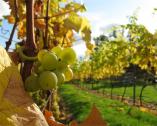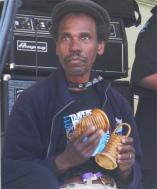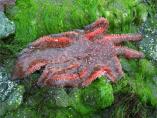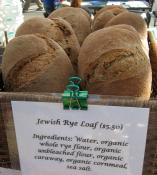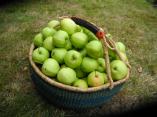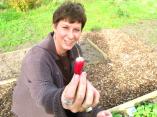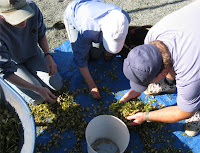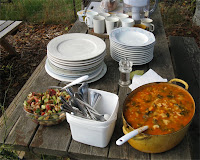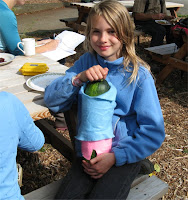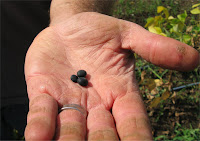It was my last Wednesday work party at Haliburton yesterday, which we spent harvesting tomatoes (growing very interesting shapes!)

and weeding the squash patch which was full of mustard weed and smartweed in flower and seed. Meanwhile the farmers are gearing up for squash season and the Halloween extravaganza: pumpkin carving (for which they are not using certified organic pumpkins, I believe, though some of the farm’s produce will be turned into food to munch on during the events) and composting party, held in conjunction with the Compost Education Centre. The Sunbird farmers as always have an aesthetically superior arrangement

though the Terralicious greenhouse also sports a nice line of pumpkins

and some beautiful squashes indoors as well.

The best finale – in addition to seeing the well-named everbearing raspberries still on the farmstand – was taking home the last watermelon! Not a great example of the variety since it’s missing its stars, it’s an heirloom Moon & Stars – thought to be the oldest watermelon.

An amusing account came through on the COG listserv, about a recent Farm Food Freedom dinner to raise awareness and funds for the campaign against mindless government restrictions on farming (affecting meat and milk and eggs etc.), which featured a quiz that people could attempt, with questions such as the following:
1. Which of the below items are illegal in British Columbia? Put an X by the illegal activity.
1. Selling a rifle from your home.
2. Selling food with measurable pesticide residues from your home.
3. Selling an organic freezer turkey from your home.
2. Which of the animals below are illegal to own in the town of Sechelt?
1. A pair of pit bull terriers.
2. A Rotweiller/mastiff cross.
3. A lamb.
3. Things that cannot be legally purchased in Canada – Cross out the illegal item.
1. Fireworks.
2. Bullets.
3. Red Fife Wheat seed.
4. Farmers must now submit recipes and completed laboratory test results of all cooked foods to Health Departments before selling them at the Farmers Market. This new move apparently protects our health. Circle the items that the Health Departments are not concerned with as an ingredient.
1. Pesticides.
2. Herbicides.
3. Fungicides.
4. All of the above.
5. The vast majority of food borne illnesses result from errors at:
1. Unregulated farms.
2. Farmers Markets without Health approval.
3. Government licensed food processing plants.
6. How many cases of food borne disease per annum have been attributed to eating un-inspected meat? Circle it.
1. Over 50
2. Over 100
3. None
7. Which of the fines below apply to farmers proven to be selling farms meats from their homes? Circle it.
1. $500 – $800.
2. $1000 – $3000
3. $25,000 – $50,000
8. Which of these items was confiscated by inspectors from a Canadian Seedy Saturday as an illegal product? Put a dark line through it.
1. GM beet seeds.
2. Roundup ready canola seed.
3. Small Yukon gold potatoes.
9. Which of these common farm practises are illegal? Cross it out.
1. Using large tractors with un-tuned engines for small jobs.
2. Applying excessive nitrogen fertilizers that destroy soil.
3. Selling fresh eggs in a clean container at an un-refrigerated farm stand.
10. Put a big X by the item that you can only purchase on the black market.
1. A 26 oz bottle of Vodka on a long weekend.
2. A case of Player’s Light from a corner store.
3. A jar of milk fresh from the cow.
And yes, the correct answer number is the same all the way through. A good way I thought to make some serious points about local food supply and irrational government restraints on meat, milk and egg farmgate sales. If you’d like to join the freedom fighters, you can find print-your-own stickers and bumper stickers on Farm Food Freedom or under “Be Subversive” at Edible Landscapes.
